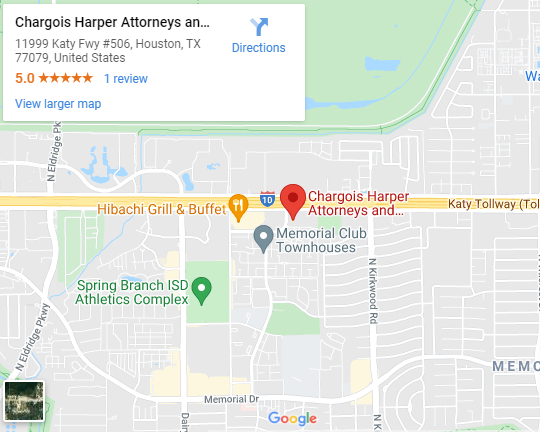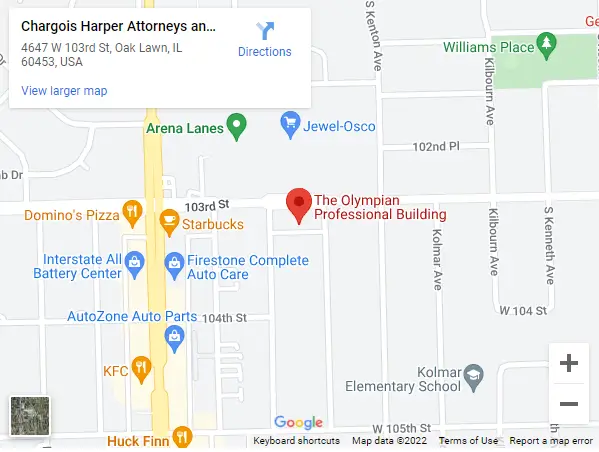Who Holds the Right to Challenge a Will in Texas?
Navigating the Grounds for Will Contests
The passing of a loved one brings not only grief but often the difficult task of settling their affairs. In estate planning, a last will and testament stand as a guiding document, outlining the wishes of the departed regarding the distribution of their assets. However, what happens when doubts arise regarding the validity of a will? Determining who can challenge a will in Texas involves an understanding of the legal principles and criteria governing such challenges.
From understanding the fundamental reasons for challenging a will to identifying those who possess the right to challenge, this article will give you an overview of the delicate balance between testamentary freedom and the need for fairness and justice.
Quick Summary:
- Understanding the Importance of a Will: A will, or last will and testament, is a vital legal document that outlines an individual’s wishes regarding the distribution of their assets and the management of affairs after death.
- Significance of a Will Contest: A will contest is a legal proceeding where the validity or legality of a will is challenged, aiming to ensure the accurate reflection of the testator’s intentions and adherence to legal requirements.
- Who Can Challenge a Will: Interested parties, including spouses, children, heirs, beneficiaries, and creditors, may have the legal standing to challenge a will in Texas.
- Grounds for Challenging a Will in Texas: Common grounds for challenging a will include lack of testamentary capacity, undue influence, fraud or forgery, and improper execution.
What is a Will?
A will, commonly referred to as a last will and testament, is a legal document that specifies an individual’s wishes regarding the distribution of their assets and the handling of their affairs after death. It serves as an important estate planning tool, allowing individuals, referred to as testators, to express their preferences for the disposition of their property and the care of dependents.
A will typically details the distribution of various assets, such as real estate, bank accounts, investments, personal belongings, and any other possessions of value. The testator may also specify how outstanding debts and funeral expenses should be handled, and how these financial obligations should be satisfied from the estate.
What is a Will Contest?
A will contest refers to a legal proceeding in which an individual challenges the validity or legality of a last will and testament. In a will contest, the person disputing the will is known as the contestant.
The goal of a will contest is to determine whether the will accurately reflects the testator’s intentions and meets the legal requirements for validity. If successful, the court may declare the will wholly or partially invalid, leading to a reassessment of the distribution of the deceased person’s assets.
Who Can Challenge a Will in Texas?
Challenging a will in Texas is a complex legal process that involves careful consideration of both familial relationships and legal principles. Understanding who has the right to contest a will is crucial for those seeking to ensure the fairness and validity of testamentary dispositions. Here’s an overview of the individuals who can challenge a will:
Interested Parties
In the context of challenging a will, interested parties are those who stand to be affected by the contents of the will or its execution. These individuals typically have a personal, financial, or legal interest in the outcome of the probate process or the distribution of the deceased person’s assets. Interested parties often include:
Spouses
The spouse is the legally married partner of the deceased. In most jurisdictions, spouses may have specific rights to challenge a will, especially if they are not adequately provided for in the will.
Children and Dependents
Children and dependents may have a legal right to challenge a will, especially if they are not adequately provided for or if they believe the will is unfair.
Heirs
Heirs are individuals who stand to inherit from the deceased person’s estate if there is no valid will. Generally, they have a legal standing to challenge a will, especially if they believe the will does not accurately reflect the deceased’s intentions or if they are disinherited without a valid reason.
Beneficiaries
Beneficiaries are individuals or entities explicitly named in the will to receive specific assets or property. They may challenge a will if they believe the document is not a true representation of the testator’s wishes or if there are suspicions of fraud, undue influence, or lack of testamentary capacity.
Creditors
Creditors are individuals or entities to whom the deceased owed money at the time of their death. They may have the right to challenge a will if they believe the distribution of assets would hinder their ability to collect debts owed by the deceased.
What are the Grounds for Challenging a Will?
There are specific grounds on which a person can challenge the validity of a will. Here are some common grounds for challenging a will in Texas:
Lack of Testamentary Capacity
Testamentary capacity refers to the legal concept that the testator may not have understood the overall value of their assets and who should logically inherit their assets. Individuals challenging a will might argue that the person creating the will did not have the mental capacity to understand the consequences of their actions and was not of sound mind when the will was created.
Undue Influence
Undue influence occurs when a person manipulates or coerces the testator into creating a will that benefits the influencer. If it can be proven that the will was created under undue influence, it could be contested and deemed invalid.
Fraud or Forgery
Fraud involves intentional deception, while forgery is the creation of a false document with the intent to deceive. If there is evidence of fraud or forgery related to the creation or execution of the will, it may be challenged on these grounds.
Improper Execution
A will may be challenged if it is not executed according to the legal requirements of the jurisdiction. Contestants must show that the will was not signed in the presence of witnesses or that it didn’t meet other formalities as required by law.
Revocation or Superseding Will
If there is evidence that the testator revoked the challenged will or created a subsequent will that supersedes it, the challenged will may be invalidated.
The Role of a Houston Estate Planning Attorney in Challenging a Will
When a loved one passes away, their will serves as a guide for managing their legacy. However, some situations might leave you questioning the fairness and wondering if their will truly reflects their wishes.
Challenging a will is a significant decision, one that requires careful consideration and a clear understanding of your legal rights. Remember, this journey isn’t simply about reclaiming assets; it’s about honoring the true wishes of your loved ones and ensuring their legacy is respected.
In Houston, our estate planning lawyers at Chargois Harper address will challenges and estate planning complexities, guiding you through grounds, evidence assessment, and potential success. Our aim is to offer peace of mind, handling legal matters while you focus on your well-being and family.
Contact us now to schedule a consultation and take the first step toward reclaiming control over your estate planning concerns. We can also help you deal with family law, real estate, and probate cases in Texas.
Visit Us:

You can count on us to protect your interests and resolve your legal concerns in Texas & Illinois.
Facing legal family disputes in Texas?
Dealing with legal disputes can be complicated and overwhelming, especially when it can affect you and your family, but you don't have to face it alone. Whether it's divorce, child support, custody and visitation, or guardianship, our Houston family law attorneys at Chargois Harper have the knowledge, experience, and compassion to help you through your family law case.
Houston Office
11999 Katy Freeway #506
Houston, TX 77079
Illinois Office
4647 W. 103rd Street, Oak Lawn Illinois 60453
Get Help From Our Illinois & Texas Attorneys
All the information on this website – www.chargoisharper.com – is published in good faith and for general information purposes only. Chargois Harper Attorneys and Counselors at Law does not make any warranties about the completeness, reliability and accuracy of this information. Any action you take upon the information you find on this website (Chargois Harper Attorneys and Counselors at Law), is strictly at your own risk. Chargois Harper Attorneys and Counselors at Law will not be liable for any losses and/or damages in connection with the use of our website.
Copyright © 2024 Chargois Harper Attorneys and Counselors at Law - All Rights Reserved. | Powered by Advantage Attorney Marketing & Cloud Solutions




